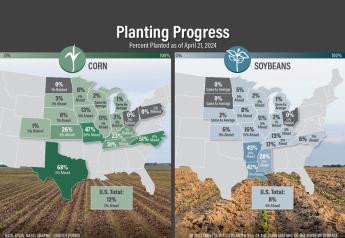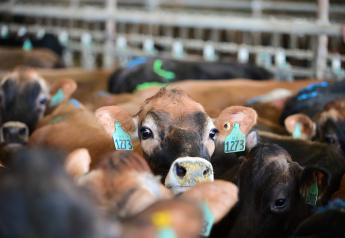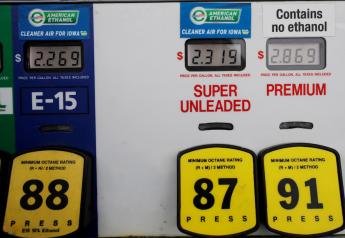Advancing Dairy Sustainability from the Ground Up
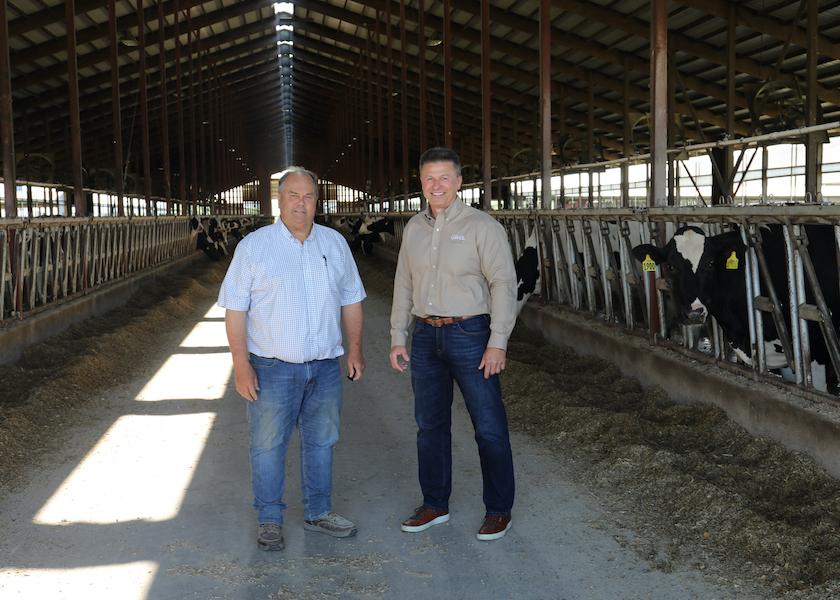
Environmental sustainability in general has a very basic definition: maintaining or increasing productivity while continuously improving environmental outcomes. It’s something that’s been in practice on dairy farms for generations. Yet quantifying, improving and communicating standard, sustainable practices isn’t basic at all.
According to Farmers for Sustainable Food (FSF), there are many ongoing efforts to develop definitions for and programs to manage agricultural sustainability. Driven by the Dairy Business Association, Edge Dairy Farmer Cooperative and The Nature Conservancy, FSF is a Wisconsin-based program that facilitates innovation and shared learning among members to bring about continuous, measurable improvements in areas such as water quality, soil health and groundwater.
“We’re trying to put that whole farm picture together, but it’s a challenge, because there’s not one tool out there that gives you information about your field sustainability, your farm sustainability and your financials,” says Lauren Brey, FSF Director. “You have to put everything together from different pieces.”
Together with a diverse group of public and private partners, FSF has developed a framework to bring the pieces together, connecting existing groups of farmers with resources to help implement, measure and share sustainable practices. The framework is brought to life through farmer-led watershed conservation initiatives. “Our intention was to bring already-established tools to the farmers: what’s already out there that we can use to meet every partner’s goals?” Brey says.
Brey adds that it was farmers who were already excited about conservation that influenced the sustainability concepts and resources that make up FSF’s framework. “It really was farmer-led in terms of the farmers wanting to do something that documented their efforts – in the fields in particular.”
The existence of groups like FSF and the sustainability framework clearly spells out the importance of farmers working together toward their common goals. Brey identifies two questions that demonstrate the mission: “How do we help farmers meet the standards that food companies are going to be requiring of them at some point in the near future? And how can we help this be that farmer-led type of approach?”
“We’re not telling the farmers you should do XYZ,” Brey says. “We’re helping them put what they’re already doing into tools so that they can analyze and better understand their environmental and financial impact.” It’s information that provides aid on several fronts: better farm management, sharing information with the supply chain, and eventually helping to inform companies building platforms that put everything together into a dashboard.
The Framework for Farm-Level Sustainability Projects is a free guide for anyone interested in implementing strategic and measurable sustainability practices on their farm. Brey says, “It’s like a how-to guide: if you’re interested in sustainability projects, here are some things to think about, steps to take, considerations to make and possible tools to use.”
In addition to supporting sustainability efforts for a wide array of farms, with varying management styles, geographic and economic challenges, FSF recognizes that the additional work required to collect sustainability data presents a significant cost challenge to many farmers. While it would be ideal for someone such as an agronomist or extension agent who has a working knowledge of the farm assist with data collection and input, Brey says they’ve already got a lot on their plates. “Finding volunteers to do that isn’t feasible for an efficient project, so we’re looking at, ‘how do we support the farmers better in putting their information into the tools used?’”
“We’re sourcing grant funding and getting sponsors to help with the technical support piece,” Brey says. “Our staff—or hopefully future staff—would be a data collection person to go to farmers in our project to help them put their work into tools.”
Nationwide Sustainability Project Support
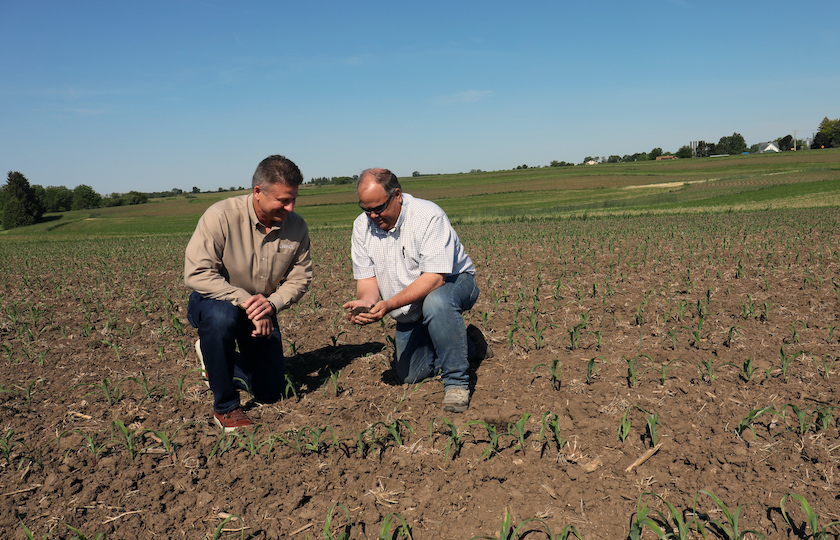
The checkoff-funded Innovation Center for U.S. Dairy is one of the funding supporters for the FSF Framework project. Michelle Rossman, Vice President of Environmental Stewardship, enthusiastically describes the benefits of a farmer-led approach to implementing quantifying sustainability practices.
“The FSF Framework project aligns perfectly with the broader industrywide 2050 Environmental Stewardship Goals that seek to achieve greenhouse gas (GHG) neutrality, optimize water use while maximizing recycling, and improve water quality by optimizing the use of manure and nutrients,” Rossman says.
“It’s a tremendous example of farmers forming a group, learning from each other, and through the support of FSF are now receiving financial and technical support,” she continues. “They have built a group where they are continually learning what they can do on their farms within a trusted environment locally. That type of module will continue to build, and in a specific region, it makes sense for those farmers to come together. We love to see farmer networks like that continue to grow and want to understand how to support them.”
Much like there is no one-size-fits-all sustainability program, there’s no one place for farmers to begin implementing conservation practices or measuring them. “Farmers need to work with those who know their farm and know their management to help make the right choices,” Rossman says. “Each farmer needs to understand their own management practices and economics, what their current farm system looks like.”
Rossman recommends forming relationships with local USDA-NRCS staff to best understand the opportunities available locally, as many programs also offer financial incentives to make changes and adopt conservation practices, and these vary from state to state. She also stresses the importance of leaning on advisers who know the individual farm and management system. Nutritionists, agronomists and technical advisers may also have a good pulse on available programs and can be instrumental in connecting the dots back to what would make the most sense on your farm.
In addition to varied farming practices, management styles and geographical challenges, Rossman and the Innovation Center acknowledge the varied learning styles to be met with sustainability tools and resources.
“Everyone learns differently and goes to different sources to learn,” she says. “Some would prefer to search online instead of talking with someone. But when it comes down to it, they need to be continually learning, seeking knowledge from people and resources they trust. Take advantage of field days, workshops and webinars—find the resources that work for you.”
Online sustainability resources from the Innovation Center for US Dairy include:
- Newtrient Solutions Catalog
- FARM Environmental Stewardship
- Dairy Farm Environmental Stewardship Considerations and Resource Guide
Find the FSF Framework for Farm-Level Sustainability Projects here.



